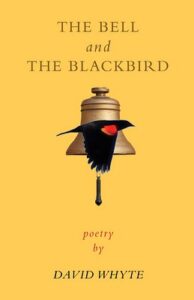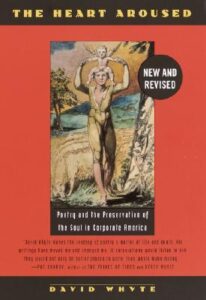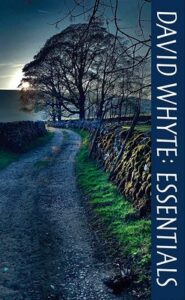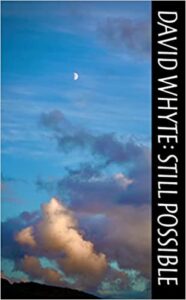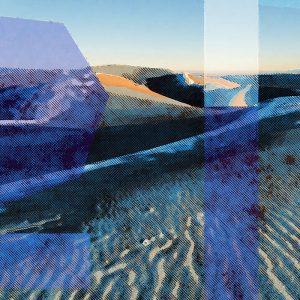David Whyte
Leaving the Island
Sometimes leaving feels like you’re splitting yourself in two, but you leave anyway. What compels us? What holds us together even as we look back? David Whyte’s poem combines pain and promise as someone is both departing and venturing at the same time.
We’re pleased to offer David Whyte’s poem, and invite you to connect with Poetry Unbound throughout this season.
Pre-order the forthcoming book Poetry Unbound: 50 Poems to Open Your World and join us in our new conversational space on Substack.
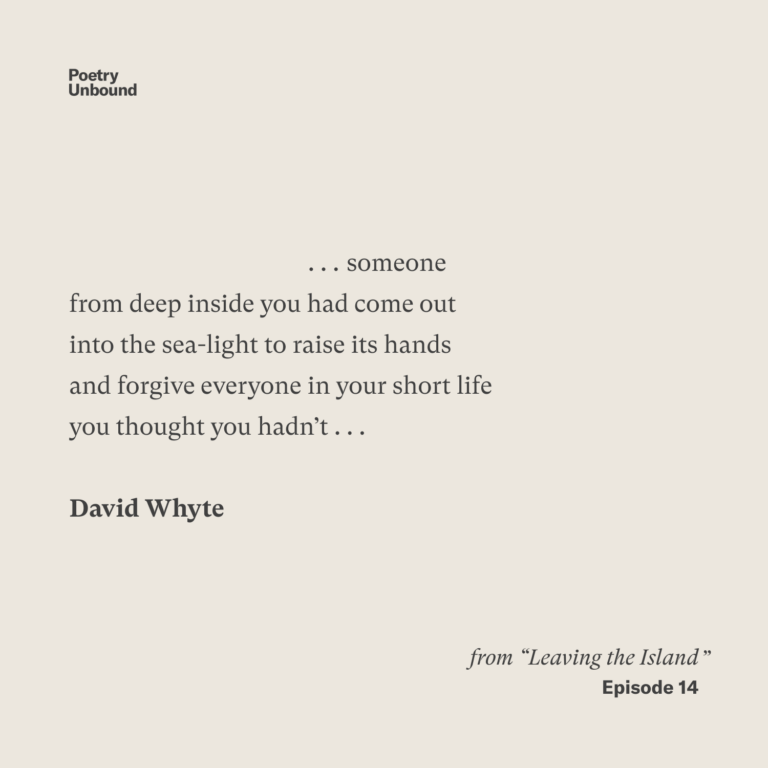
Guest

David Whyte is the author of many books of poetry and prose. He grew up with a strong, imaginative influence from his Irish mother among the hills and valleys of his father’s Yorkshire. He now makes his home in the Pacific Northwest of the United States. He holds a degree in Marine Zoology and has worked as a naturalist guide in the Galapagos Islands. His books include The Heart Aroused: Poetry and the Preservation of the Soul in Corporate America, Consolations: The Solace, Nourishment and Underlying Meaning of Everyday Words, and The Bell and the Blackbird. His latest collections are David Whyte: Essentials and Still Possible.
Transcript
Pádraig Ó Tuama: My name is Pádraig Ó Tuama, and I moved around a lot in my life before I settled in Belfast about 20 years ago. I never thought I’d be a nostalgic person, but strangely enough, when I moved around a lot, I did become nostalgic. Nostalgia comes from Greek, ‘nostos,’ return home, and ‘algos,’ pain. And nostalgia, therefore is a certain pain about home that you carry when you’re away. Nostalgia can come with great romanticism. You can look back on the home that you were happy to leave with this deep sense of, “Oh my God. Think about how beautiful it was.” And that romanticism has a function, to tie you to somewhere, to remind you that you can look at things from new points of view, and to hold you together in terms of the story of your life through its places.
[music: “Praise the Rain” by Gautam Srikishan]
“Leaving the Island” by David White.
(Inishbofin)
“It must have been
the slant of the light,
the sheer cross-grain of rain
against the summer sun,
the way the island appeared
gifted, out of the gleam
and the depth of distance,
so that when you turned
to look again,
the scend of the sea
had carried you on,
under the headland
and into the waiting harbour.
“And after the pilgrim lanes,
and the ruined chapel,
the lads singing beneath the window,
and the Corn-Crake calling from
a corner of a field,
after the gull cries and the sea-hush
at the back of the island,
it was the way, standing still
or looking out,
walking or even talking
with others in the evening bar,
holding your drink
and laughing with the rest,
that you realized–part of you
had already dropped to its knees,
to pray, to sing, to look–
to fall in love with everything
and everyone again, that someone
from deep inside you had come out
into the sea-light to raise its hands
and forgive everyone in your short life
you thought you hadn’t, and that all along
you had been singing your quiet way
through the rosary of silence
that held their names.
“Above all, the way afterwards,
you thought you had left the island
but hadn’t, the way you knew
you had gone somewhere
into the shimmering light
and come out again on the tide
as you knew you had to,
as someone who would return
and live in the world again,
a man granted just a glimpse,
a woman granted just a glimpse,
some one half a shade braver,
a standing silhouette in the stern,
holding the rail,
riding the long waves back,
ready for the exile we call a home.”
[music: “Taoudella” by Blue Dot Sessions]
So this poem isn’t about leaving any island. David Whyte gives the name of the island, Inishbofin. And Inishbofin is off the coast of Galway, two and a half by three and a half miles, it’s small. It’s been populated for 6,000 years, if not for 10,000 years. And, in any place like that, immigration is a long story. And here’s the thing, immigration is a long story in Ireland. As a child growing up, the weekly immigration figures were quoted in the news. I remember being astonished that anybody would want to move to Ireland because the imagination of my childhood and the facts of my childhood were that people left rather than arrived.
And so this poem, “Leaving the Island”, is in a long tradition of lament and a moment of rebirth in the possibility about what might come, as well as the wondering what can continue after you’ve left such a small place like this. A place where, in the midst of the frustrations of everything, there is still the parish of your life. There’s such a generous forgiveness to everybody that happens in this poem, through this person, who’s speaking, their “short life”, suddenly finds within it the capacity to forgive all of these people, who probably were a complete pain.
This poem is so filled with the awareness of leaving a small place to go into the big place of possibility. All the things that drive that. Economic difficulties, occupation, empire, and here what we have is a lament, a song of praise, a song of beauty, a song of unfolding, and a song looking forward to the future, filled with life and knowing that sadness has its place in that. Not a sadness that will undo you, but a sadness that will hold you.
[music: “At Dusk” by Gautam Srikishan]
Inishbofin comes from the Irish Inis Bó Finne, “the island of the white cow.” There’s an old myth that Inishbofin was a floating island until sailors managed to land on it and light of fire and then became fixed. And that’s linked to a reference in the poem, “the way the island appeared / gifted, out of the gleam / and the depth of distance”. You get a sense about why people might think that an island floats. Perhaps there is a particular gathering of mist, or gleam, or fog, or haze that makes it seem like it’s not quite solid. That somehow it is floating like a cloud over the water rather than being surrounded by water.
There’s a word “scend.” “[So] that when you turned / to look again, / the scend of the sea / had carried you on”. The scend is the push or surge created by a wave. So much of this poem is in the departure. The person seems to be leaving the island and then remembering what happened perhaps on the last night at the island, or gathering all the sounds of the island, the things that were totally normal: the Corn-Crake calling from the field, or the gulls, or the hush of the sea, or the sound of people having a chat in the bar, or the laughing with your friends. Realizing that all of these things are being left behind as you’re leaving.
What’s amazing in this poem, is that in the midst of the kind of sweet sadness of leaving, at no point is there the sense of, “okay, I’m going to get the first boat back.” This person is leaving with some other destiny that’s calling, some other poem that’s in their future, some other idea of a yearning that they want to walk into, whether or not it works out.
I love the inspired nature of the person in this poem, that in the midst of being so rooted in this tiny place they are still looking to the wide world, wherever that is, County Galway, New York City, Melbourne. I have no idea where the character in this poem is supposed to be going. But they’re on a threshold, you know, they’re halfway between one experience and the other, and they’re standing in the lintel of a door, able to look back on the one hand, to life on the island and looking forward, through what they don’t know, into a future that they’re hoping is coming. So it’s a liminal poem about being in the middle space where sadness and anticipation can coexist and all of these things can be held together, and we’re capable of being made by this, not unmade by it.
[music: “Memoriam” by Gautam Srikishan]
The image leading up to the final line is somebody who is on the boat, holding onto the rail, “riding the long waves back, / ready for the exile we call a home.” This person is looking for a home elsewhere. Do they know it or are they just looking for it until they find it? We don’t know. And that home will be an exile, because it won’t be the island, however far away it is. Whether it’s only just across the water, or whether it’s across an ocean. We have no idea. But nonetheless, they know that they need to go into this exile.
And there’s a dream quality to some of this poem. The lines are very long. And there is a romanticism as part of it. In a way you could say that people invent a past in order to be able to look back to it, to hold themselves together as they navigate the present. And that is always a romantic endeavor. This poem speaker clearly needs to leave the island. For what crisis? I don’t know. Economic, love, poverty, you know, lack of employment, centuries of occupation. But we hear none of that here. There is a looking back and a forgiving of so much that’s happening. And that romantic vision toward the past and the place that you’re just leaving is often a necessary stage in the leaving, to be able to hold that sweet sadness in yourself. Part of me wonders if the speaker of this poem were to speak years later, what they would say about the island then.
But this poem isn’t naïve. I think the poem knows that romanticism of looking to a place that you’re leaving through the eyes of this fresh faced forgiveness and this anticipation, all of that helps propel you into what’s coming forward.
[music: “Outstretched Hand” by Gautam Srikishan]
“Leaving the Island” by David White.
(Inishbofin)
“It must have been
the slant of the light,
the sheer cross-grain of rain
against the summer sun,
the way the island appeared
gifted, out of the gleam
and the depth of distance,
so that when you turned
to look again,
the scend of the sea
had carried you on,
under the headland
and into the waiting harbour.
“And after the pilgrim lanes,
and the ruined chapel,
the lads singing beneath the window,
and the Corn-Crake calling from
a corner of a field,
after the gull cries and the sea-hush
at the back of the island,
it was the way, standing still
or looking out,
walking or even talking
with others in the evening bar,
holding your drink
and laughing with the rest,
that you realized–part of you
had already dropped to its knees,
to pray, to sing, to look–
to fall in love with everything
and everyone again, that someone
from deep inside you had come out
into the sea-light to raise its hands
and forgive everyone in your short life
you thought you hadn’t, and that all along
you had been singing your quiet way
through the rosary of silence
that held their names.
“Above all, the way afterwards,
you thought you had left the island
but hadn’t, the way you knew
you had gone somewhere
into the shimmering light
and come out again on the tide
as you knew you had to,
as someone who would return
and live in the world again,
a man granted just a glimpse,
a woman granted just a glimpse,
some one half a shade braver,
a standing silhouette in the stern,
holding the rail,
riding the long waves back,
ready for the exile we call a home.”
[music: “Praise the Rain” by Gautam Srikishan]
Chris Heagle: “Leaving the Island” comes from David Whyte’s book The Bell and the Blackbird. Thank you to Many Rivers Press, who gave us permission to use David’s poem. Read it on our website at onbeing.org.
[music: “Praise the Rain” by Gautam Srikishan]
Poetry Unbound is: Gautam Srikishan, Eddie Gonzalez, Lilian Vo, Lucas Johnson, Amy Chatelaine, Kayla Edwards, and me, Chris Heagle.
Our music is composed and provided by Gautam Srikishan and Blue Dot Sessions.
This podcast is produced by On Being Studios, which is located on Dakota land. Open your world to poetry with us by subscribing to our Substack newsletter at poetryunbound.org. You may also enjoy our other podcast On Being with Krista Tippett, or our newsletter, The Pause. Visit us at onbeing.org to find out more.
[music: “Praise the Rain” by Gautam Srikishan]
Pádraig Ó Tuama: Friends, thanks very much for listening to Poetry Unbound, whether you’re new or you’ve listened to them all — your attention makes everything worthwhile. And I’ve got some news: I’ve written a book, Poetry Unbound: 50 Poems to Open Your World. There’s 50 poems, each with a fresh essay written by me. I’d love if you’d pre-order it, or pre-order a few, and join up to our free interactive newsletter. Links to everything at poetryunbound.org.
Books & Music
Recommended Reading
The On Being Project is an affiliate partner of Bookshop.org and Amazon.com. Any earnings we receive through these affiliate partnerships go into directly supporting The On Being Project.





